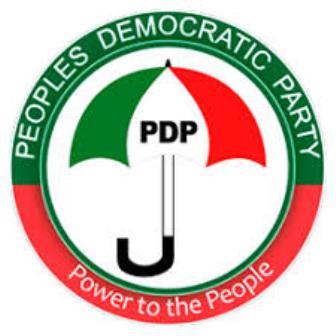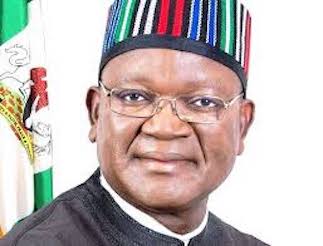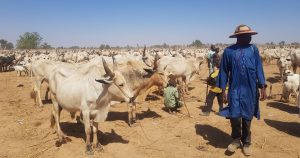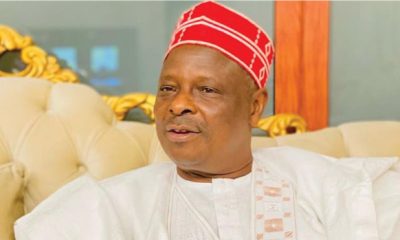COVER
On Constitutionalism: Towards Restructuring of Nigeria
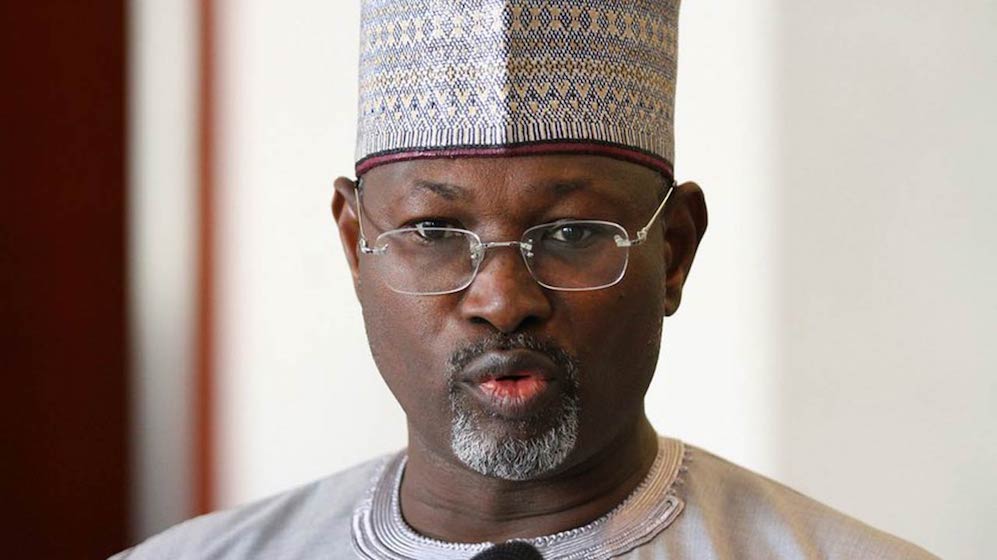
By Attahiru Jega
There is currently an upsurge of passionate demands for “restructuring”, “true federalism” and “actualization of the sovereign state of Biafra”.
These demands are intricately intertwined and interconnected, and so vociferous that they are overheating the polity.
Sooner than later, these matters have to be addressed squarely but dispassionately.
The challenge is on how to address the issue of restructuring the Nigerian federal system without upsetting the apple-chart; that is, how to add value to the structure and systemic efficacy of the federal arrangement, without unleashing instability occasioned by the mobilization of ethnic, regional and religious sentiments and identities.Federalism is supposed to be “a model of political accommodation and power sharing, as well as a cure for micro-nationalism”.
The Nigerian experience has shown that our federal arrangement has not ensured a stable political accommodation and it has not ensured equitable power and resources sharing.
And, instead of curing micro-nationalism, it has fanned the embers of its conflagration.
Some things are clear.
The demands for secession cannot be wished away, and Nigeria’s unity and continued stay as one indivisible country should not be taken for granted. Statements like: “Nigeria’s unity is non-negotiable” or “Nigeria’s continued stay as one country is not negotiable” are factually incorrect, wishful thinking and politically abhorrent to those making the demands; these should therefore be avoided, indeed stopped.
On the other hand, Nigeria has come such a long way since 1914 that it would be easier to renegotiate the strengthening of the federation through devolution of power, resources and responsibilities, than to go the route of “separation” and secession.
Secession and separation from the federal republic of Nigeria has far greater costs and consequences for all concerned (those seeking to separate and those from whom are being separated) than remaining under a restructured federal system. Thus, it is in the enlightened self-interest of Nigeria and all Nigerians to sheath the swords of secession, and wear the garb of political accommodation and appropriate and sincere power and resources sharing.
In any case, there is no perfect federal arrangement anywhere in the world. There is nothing in essence, called “true federalism”. Federalism is a lived experience, continuously changing and seeking for improvement.
No doubt, Nigeria’s need for a “reformed, revitalized, decentralized and democratized federal system” is long over due. We should therefore begin to soberly interrogate some pertinent questions. For example, what should “restructuring” of the Nigerian federation entail?
How can this “restructuring” best be brought about, and through which mechanisms and processes?
Is there anything called “true federalism”? If so what is it?
How should revenues to the federation be collected and shared?
Who should collect them and how? Why Restructuring is Necessary
Three reasons can be adduced as to why some form of restructuring needs to be undertaken, as soon as is possible, in order to improve upon the current nature and operations of the Nigerian federal system; so as to improve the structure and systemic efficacy of the federation.
The 1999 Constitution, which was hurriedly put together and enacted by the General Abdulsalam Abubakar military regime, was not a product of appropriate inclusiveness and consultation. As a result, it has many inadequacies and flaws, from which our brand of federal arrangement suffers. Although some amendments have been effected to the constitution, the key issues affecting the federal structure have not been touched; but they cannot be ignored indefinitely.
A long period of military rule has resulted in the concentration of power and resources in the central and federal government to the disadvantage of the states, which are the federating units. This has in turn made the contest for political power to occupy federal organs very intense, as capturing federal government is perceived as ensuring control of tremendous power, influence and resources.
In an ethno-religiously diverse country, centralization and concentration of power and resources at the center generates conflict-ridden competition for the control of power at the center.
Only a judicious and equitable de-concentration and reallocation of power and resources from the center to the other federating units can de-escalate tension and smoothen hierarchical and horizontal relations in the federation. In reality, the 1999 Constitution has concentrated too much power and resources in the hands of the federal government, as a comparison of the exclusive and residual lists clearly shows; in this regard the uniqueness or exceptional character of the Nigerian federal arrangement is glaring. Powers, which are traditionally the preserve of the federating units (states, regions, provinces) are in Nigeria handed over either exclusively to the federal government, or are shared concurrently by the federal government and the states.
A dispassionate review of the 1999 Constitution would help to resolve many if not all the thorny outstanding issues.
Severe inequities were introduced and entrenched over time, especially on account of the prebendal politics under civil rule, and the divide and rule tactics under military rule, especially the mobilization of ethnicity, religion and other primordial interests by those who hold andp exercise power at the federal level.
The federal character (equalizing or equal opportunity) principle was introduced to address inequities associated with employment into federal establishments. In practice, many challenges have remained with the implementation of the federal character principle.
Recommendations
The following recommendations covering the structure, power sharing and resources and revenue allocation are offered for further reflection.
Nigeria should revert to the two-tier system: Federal and States (Local Government Areas (LGAs) as subsumed under the states).
It would be unrealistic, if not impossible to revert to a regional structure similar to what was in Nigeria’s past history. The pressures that led to the creation of states would not tolerate collapsing or regrouping those states to regions.
Nigeria is probably the only federal system with constitutionally recognized three tiers: Federal, State and Local Government Areas. This aberration was created under military rule. We should revert to a two tier federal system, with LGAs subsumed under states or regions.
Nigeria should have a short federal exclusive list, consisting of Foreign Affairs, National defense and security, Commerce and Currency. We should have a short concurrent list, consisting of Policing, taxation and tertiary education/health. Whatever isn’t listed belongs to the residual powers of the states, on which federal government would have only broad regulatory and incentivizing roles.
Specifically, certain powers and responsibilities, which in most stable federations are invested in the federal government, should continue to be retained by the Nigerian federal government.
These are in respect of national security, defense, armed forces, foreign affairs, currency and monetary policies and commerce (banking, inter-state economic relations, etc.).
All others, except a few like policing and tertiary education/health, which can be on the concurrent list, can be consigned to the states, with regulatory and incentivizing responsibilities reserved for the federal government.
Henceforth, no creation of additional states should be entertained. And no merger of existing states, except by referendum in which two- thirds majority have voted yes. The question of unviability of some of the existing states can be redressed by the decrease in federal revenues, the increase in the share of federally collected revenues to the states; diversified revenue base for the states, good accountable governance and increased capacity and competence by the states in collecting taxes and levies in their jurisdiction.
Local government, structure, processes and funding, should be the responsibility of each state. A state can have power to create more or merge existing local governments, through a referendum in which two-thirds majority have voted yes. But the local government system must be democratic in form and in content, with constitutional guarantees for this.
Under no circumstances should the merger or reconfiguration of existing states into regions as federating units, akin to what obtained in the past, be contemplated. If that is what some romantically refer to as “true federalism”, it is just that: romantic and idealistic and terribly unrealistic in this age and time. Adding regions to the existing components would be unwieldy, expensive and operationally complex if not disruptive; and merging or converting existing states into regions would be even more problematic operationally and politically, and would essentially revive claims and perceptions of marginalization, discrimination and domination, which creation of states had hoped to redress.
Making revenue generation and distribution more judicious and equitable would solve the current challenges of fiscal federalism in Nigeria and make creation of regions unnecessary.
To strengthen the efficacy of the Nigerian federal system, revenue sources need to be diversified; the sharing formula need to be reviewed to devolve more resources to the states; federal tax base should be reduced and that of the states increased; and a more equitable and judicious formula should be introduced in respect of petroleum and solid mineral resources, which should be in favour of the producing states; and also in favour of the states viz-a-viz the federal government.
States should diversify their revenue base, and should pursue other, additional, sources of taxation, especially tenement and property taxation, levies on cigarettes, environmental pollution/degradation, etc., to expand their revenue base. The porous and unaccountable nature of revenue collection at the state and local levels also needs to be sanitized and made more transparent and accountable.
Some percentage increase to petroleum and other minerals’ producing states can be accommodated, up to a maximum of 5%, bringing the total on account of derivation principle to 18%.
The sharing formula between the federal and states governments should be reviewed in favour of state governments. States (inclusive of local governments) should be entitled to a maximum of 60% and the federal government no more than 40%. This is taking into account the recommendation that power and responsibilities be devolved from the federal to the state governments.
Equitable access to services by federal establishments (spread) as well as to employment/recruitment by federal establishments (access) must be guaranteed by policies and in practice to bring to the barest minimum feelings and perceptions of exclusion, marginalization and discrimination on account of region, religion and/or ethnic and communal identities.
The federal character principle needs to be retained and strengthened. Identified challenges in its implementation must be redressed. Other global good practices in affirmative action and securing equality of opportunity, which drive inclusiveness and address marginalization in diverse societies should be identified and adapted (not wholesale adoption!).
Ways and means of making Chapter Two of the Constitution, on Directive Principles of State Policy, justiciable should be explored and entrenched in practice.
Ultimately, we need to realize that mere constitutional provisions do not by themselves ensure a stable and efficacious federal arrangement. These have to be backed by good leadership and good, accountable, responsible and responsible governance, that is guided in practice by the rule of law enshrined in the Constitution.
Therefore, the challenging task of nurturing a democratic political culture and electoral integrity has to be pursued vigorously accompanying the processes of restructuring the federation.
Addressing the imbalances and inequities identifiable in the current Nigerian federal system is long overdue. Better late than never and the time is aptly now. In doing this, we must discard both the wishful thinking that “Nigeria’s unity is non-negotiable” and the idealistic and romantic notions of “ Only on True federalism we stand”.
No federal arrangement is perfect and accepted by all in it. For countries, which are diverse in complex and intricate ethno-religious mosaics, such as Nigeria, federalism is the only game in town, which can be continuously improved upon.
We can do this by removing all the distortions, which have accumulated in our short history, and by bringing and adapting, as value-additions, global good practices from other relatively more stable federal systems.
Learning how countries with more complex diversity than ours, such as India manage to stabilize their federal arrangement, can help us in no small measure to address our own challenges.
By working hard and rationally, scientifically, to remove all the distortions in our federal system we would have a better functioning federation, with only the states as federating units; with local governments subsumed under the states; without creating regions (either in addition to states or by merging states); with substantial devolution of power, responsibilities and resources from the federal government to the states; and with mechanisms of ensuring greater equality of opportunity for all and affirmative action for inclusiveness of the marginalized, minorities and discriminated against groups in the country.
Professor Atahiru M. Jega, Department of Political Science, Bayero University, Kano
COVER
Transcorp Hilton Abuja Appoints New General Manager
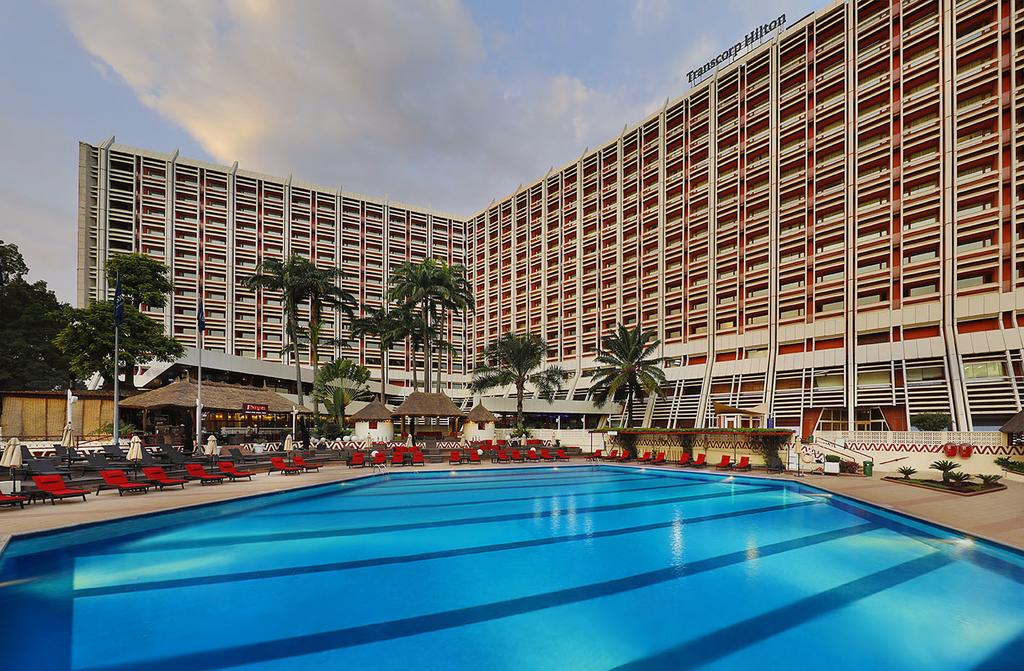
By Tony Obiechina, Abuja
The Management of Transcorp Hilton Abuja has appointed Martin Zarybnicky as the new General Manager. His appointment took effect on August 1st 2025.This was disclosed in a statement by the eCommerce Manager, Transcorp Hilton Abuja, Ijeoma Osuji.
Martin brings over 30 years of global hospitality experience to the role, having held leadership positions at international hotel brands across EMEA and APAC, including tenures in Thailand, Egypt and Russia. The new role marks Martin’s return to Hilton, where he previously served as General Manager at Hilton Sharm Waterfalls Resort.Speaking on the development, the Managing Director/CEO Transcorp Hotels Plc, Uzo Oshogwe, said: “We are delighted to welcome Martin Zarybincky to the Transcorp Hotels family. His wealth of international experience brings fresh perspectives that will enrich our culture and elevate the guest experience we are known for.”We look forward to supporting him as he settles into his new role and to the impact his leadership will bring in driving excellence for our guests.”A seasoned hotelier, Martin has a strong track record in driving operational excellence, enhancing guest satisfaction, leading major refurbishments, and repositioning hotels for long-term commercial success. His leadership has earned multiple industry awards and recognition across the Middle East, Asia, and Europe.Vice President, Operations, Sub-Saharan Africa & Indian Ocean, Hilton, Andreas Lackner said: “Martin brings a wealth of global hospitality experience and a strong history of impactful leadership to his new role. His background across diverse markets and brands makes him an excellent fit for Transcorp Hilton Abuja, and we are pleased to welcome him back to Hilton.”In his new role, Martin will oversee all aspects of hotel operations, driving strategic growth, operational efficiency, and an elevated guest experience in line with Hilton’s standards of excellence.“Nigeria remains a leading hub for inclusive growth across Africa. At Transcorp Hilton Abuja, we are committed to supporting the development of hospitality in this vibrant market. I am proud to be part of the amazing team here, and together, we are eager to continuously showcase the warmth and excellence of genuine Nigerian hospitality,” said Zarybnicky.COVER
Two Months After, Herdsmen Raid Yelewata Again, Kill Three, Abduct Others

From Attah Ede, Makurdi
Suspected Lakurawa terrorists, working in concert with armed herders, yesterday launched a deadly raid on Yelewata community in Guma Local Government Area of Benue State, killing three people and abducting three others.The attackers, said to have crossed from neighbouring Nasarawa State, struck around 7:00AM, opening fire on villagers, who were heading to their farms.
The incident happened barely 300 yards from a security base. Enraged residents, including women and youths, blocked the Makurdi–Lafia–Abuja expressway in protest, displaying the bodies of the victims and demanding stronger security measures. The protesters later marched towards the Government House in Makurdi.A youth leader, Achii Matthias, accused Fulani herders of masterminding the attack, lamenting that it occurred despite the presence of about 200 security personnel in Yelewata and surrounding areas.Special Adviser to the Benue State Governor on Security, Joseph Har, confirmed the incident, saying the road blockade had been cleared.The Benue State Police Command also confirmed the attack, stating that at about 5:00AM on the same day, gunmen suspected to be bandit herdsmen attempted to invade Udei town but were repelled by police tactical units.“At 7:00AM, security agents in Yelewata responded to gunfire from armed men approaching the town, engaging them in a shootout and forcing them to flee with injuries. Unfortunately, some villagers at the outskirts were attacked before security forces could reach them.“Three people sustained serious injuries and were taken to Benue State University Teaching Hospital, while three others were confirmed dead.Commissioner of Police, Emenari Ifeanyi, commiserated with the victims’ families and assured that efforts to combat criminality in the area would continue, urging residents to support security agencies with timely information.This attack comes less than two months after over 200 people were reportedly killed in a midnight assault on Yelewata.COVER
Tinubu Reshuffles FCC, Reappoints Secretary, 31 Commissioners

By Elijah Oguche, Abuja
President Bola Tinubu has reappointed Dr. Muheeba Dankaka as the Executive Chairman of the Federal Character Commission for a second five-year term.This was contained in a statement by the Special Adviser to the President on Information and Strategy, Bayo Onanuga yesterday.
In addition to Dankaka’s reappointment, the president also appointed Mohammed Musa as the commission’s secretary and retained Kayode Oladele, a former House of Representatives member from Ogun State, as a commissioner. Oladele had served as the FCC’s acting chairman following the expiration of Dankaka’s first term in 2024.The President also renewed the appointments of Lawal Ya’u Roni (Jigawa), Abubakar Atiku Bunu (Kebbi), and Eludayo Eluyemi (Osun) for a second term as commissioners.To further strengthen the commission, Tinubu appointed 31 new commissioners, representing various states and the Federal Capital Territory (FCT).The new appointees include Hon. Obina Oriaku (Abia), Bema Madayi (Adamawa), Obongawan Ebong (Akwa Ibom), Hon. Nnoli Gloria (Anambra), Babangida Gwana (Bauchi), Tonye Okio (Bayelsa), Aligba Tarkende (Benue), Modu Mustapha (Borno), Dr. Stella Ekpo (Cross River), Ederin Idisi (Delta), Nwokpor Nduka (Ebonyi), Hon. Chief Victor Edoror (Edo), Hon. Sola Fokanle (Ekiti), Peter Eze (Enugu), and Ibrahim Mairiga (Gombe).Others appointees include: Hon. Jerry Alagbaoso (Imo), Ruth Ango (Kaduna), Muhammad Nayya (Kano), Hon. Anas Isah (Katsina), Bello Eneye (Kogi), Dr. Ibrahim Abdullahi (Kwara), Alh. Isah Jibrin (Niger), Comrade Ajimudu Bola (Ondo), Prince Ayodeji Aleshinloye (Oyo), Hon. Pam Bolman (Plateau), Aaron Chukwuemeka (Rivers), Alh. Aminu Tambar (Sokoto), Bobboi Kaigama (Taraba), Hon. Jibir Maigari (Yobe), Sani Garba (Zamfara), and Solomon Dagami (FCT).Similarly, President Bola Tinubu has appointed Ms. Rinsola Abiola as Director-General of the Citizenship and Leadership Training Centre (CLTC).Abiola, an expert in strategic communication and government relations, previously served as Senior Special Assistant to the President.In addition, President Tinubu appointed Nasir Bala Aminu Ja’oji as Senior Special Assistant on Citizenship and Leadership.Mr. Ja’oji, who had served as Special Adviser on Mobilisation to the Governor of Kano State and a member of the Governing Council of Coordinated Arewa Youth Groups, is an advocate of women and youth empowerment and development.



